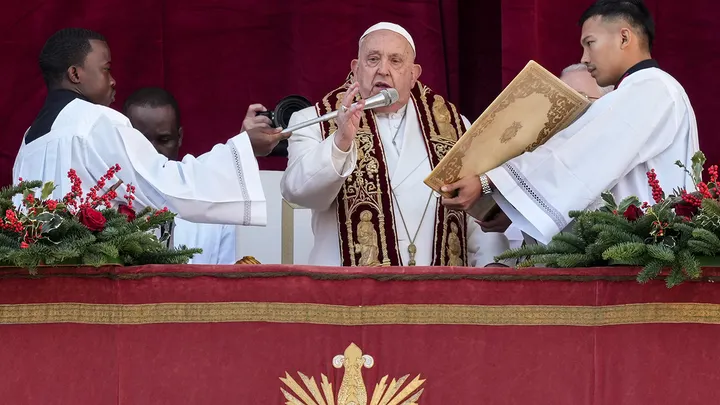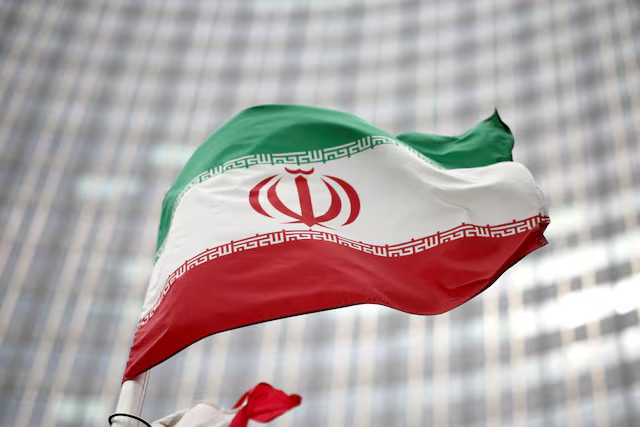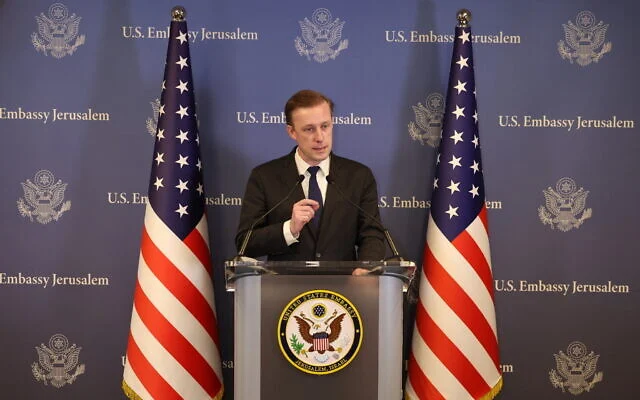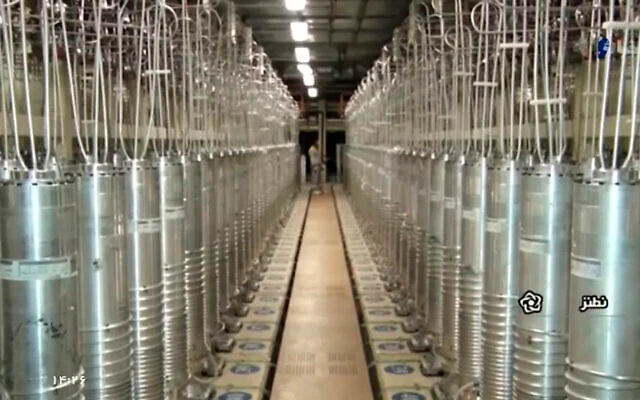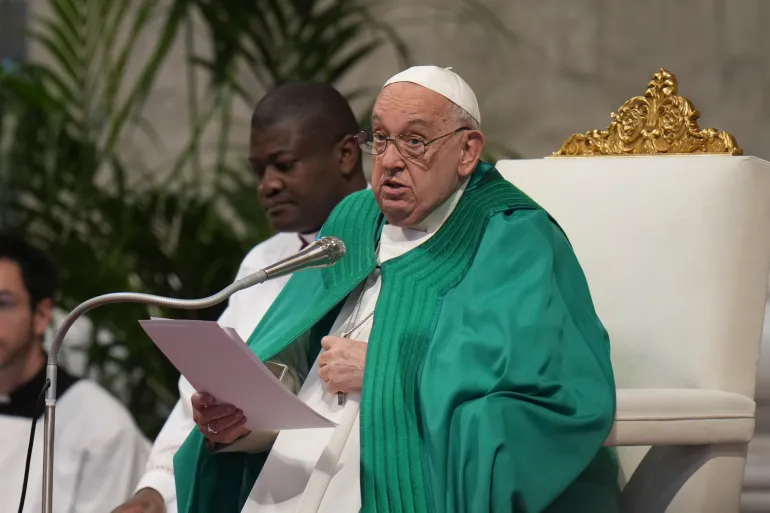Pope Francis: 21 Cardinals

Pope Francis, in a stirring display of his unwavering commitment to reshape the Catholic Church hierarchy, announced 21 new cardinals on Sunday, including a Belgian missionary to Iran and a Ukrainian bishop in Australia.
The pope’s bold move comes amidst heightened tensions in the Middle East, to which Francis responded with a stirring call for peace and the release of hostages in Gaza, lamenting the “destructive military actions” impacting the Palestinian people.
“I appeal to the international community to end the spiral of revenge and not to repeat attacks,” he urged, imploring nations to uphold sovereignty through dialogue and peace.
With the selection of these new cardinals, Pope Francis continues his transformative approach to the church, rejecting unwritten traditions that had previously reserved the coveted “red hats” for specific regions or dioceses, particularly in Italy.
The Pope’s vision of a more representative and inclusive hierarchy for the worldwide Catholic Church is brought to life through his choices, with bishops from Indonesia, Algeria, Japan, and the Ivory Coast joining the ranks of electors.
Among the notable choices is Archbishop Dominique Mathieu of Tehran, whose appointment as a cardinal marks a significant milestone in the Pope’s efforts to foster dialogue and peace in the Middle East.
In a region fraught with conflict and division, this selection underscores Francis’ belief that the Catholic Church has a vital role to play in promoting understanding and cooperation between different faiths and cultures.
Meanwhile, the youngest of the newly appointed cardinals, Bishop Mykola Bychok of Australia, embodies Francis’ commitment to reaching out to the peripheries and empowering younger generations of church leaders.
With the pope’s decision to appoint so many new cardinals, the composition of the College of Cardinals, the body that elects the next pope, is now largely shaped by Francis’ vision and priorities.
This change in the hierarchy of the Catholic Church is more than just a symbolic gesture; it is a reflection of the pope’s conviction that the church must be responsive to the needs and perspectives of all its members, regardless of their location or background.
While Pope Francis has ushered in a new era of inclusivity and diversity in the Catholic Church, his selection of cardinals also highlights his willingness to break with tradition and challenge established norms.
By elevating Archbishop Dominique Mathieu, a missionary from Belgium, to the rank of cardinal, Francis has taken a significant step toward fostering interfaith dialogue and promoting peace in the Middle East.
As the world watches and waits, Pope Francis’s bold choices for the College of Cardinals signal his commitment to transforming the Catholic Church from within, championing inclusion, dialogue, and peace even in the face of global conflict and strife.
As the oldest active cardinal, Francis understands the urgency of his mission to guide the church toward a more just, equitable, and compassionate future. His decision to prioritize younger, more diverse voices in the College of Cardinals reflects his belief that these values must be upheld and carried forward by the next generation of church leaders.
References and Citations:
- ICN – Pope Francis leads Rosary for Peace for world in danger
- Vatican News – Pope Francis announces consistory for creation of 21 Cardinals
- CNN – Pope picks 21 new Cardinals in move that broadens pool of who will choose his successor


